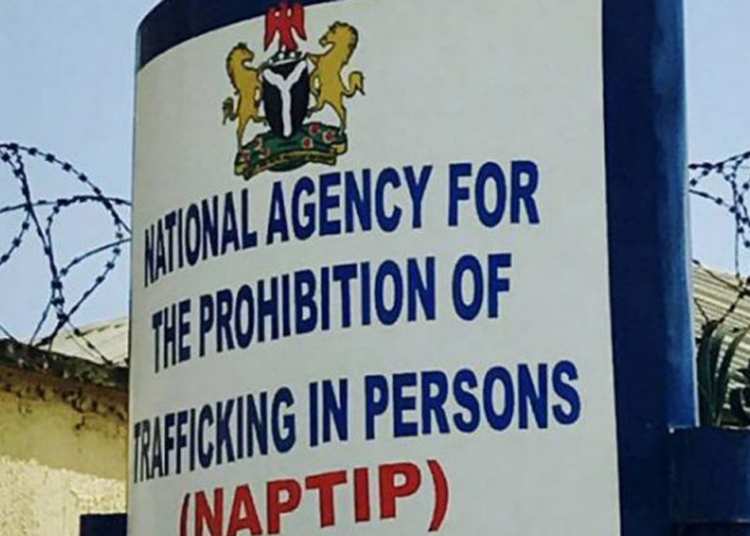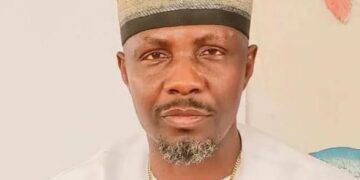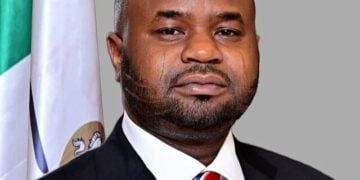National Agency for the Prohibition of Trafficking in Persons (NAPTIP) has rescued 25,642 victims of human trafficking and secured 750 convictions since its establishment, the attorney-general of the federation and minister of Justice, Lateef Fagbemi, has said.
At the 28th National Stakeholders’ Consultative Forum and Summit on Human Trafficking held in Abuja on Wednesday, Fagbemi praised the agency for what he described as remarkable operational milestones in the fight against human trafficking in Nigeria.
He revealed that out of the rescued victims, 73.8% were females and 48.1% were children, underlining the vulnerability of women and children to trafficking syndicates. He also noted that 11,406 suspected traffickers have been arrested, leading to 750 convictions, including 469 males and 281 females.
“These strides are worth celebrating, considering the intricacies involved in obtaining a single conviction in a highly sensitive and clandestine crime such as human trafficking,” the minister said.
Fagbemi commended the leadership of NAPTIP under Director-General Hajiya Binta Adamu Bello for her dedication and called the forum a significant milestone in Nigeria’s coordinated counter-trafficking response.
In her welcome remarks, Binta Adamu, director-general of NAPTIP, announced that the agency has launched a National Human Trafficking Data Dashboard to enhance coordination, transparency, and data-driven decision-making in the fight against human trafficking in Nigeria.
She described the dashboard as a major milestone in efforts to align reporting and victim support systems across agencies and civil society actors.
Bello also disclosed that early consultations have commenced on the review and renewal of the National Action Plan (NAP) on Human Trafficking, which is due to end in 2026. She emphasised the need for a strategic, inclusive, and survivor-centred new framework to guide national response efforts.
The NAPTIP boss further raised concerns about evolving trafficking tactics, including loan-for-sex scams, cybercrime-linked trafficking, and fake job and scholarship offers targeting Nigerian youths. She called for cross-sector collaboration to tackle these sophisticated and digitally enabled crimes.
Meanwhile, the European Union has announced an additional €6 million to strengthen Nigeria’s fight against human trafficking and improve migration governance.
Ambassador Gautier Mignot, head of the European Union Delegation to Nigeria and to the Economic Community of West African States (ECOWAS), announced the new funding at the forum, describing it as a reinforcement of the EU’s commitment to Nigeria’s efforts in tackling the menace.
According to Mignot, the support will be channelled through the ongoing project on migration governance in Nigeria, implemented by the United Nations Office on Drugs and Crime (UNODC) and the International and Ibero-American Foundation for Administration and Public Policies (FIAP).
“This intervention is about building resilience within institutions, across borders, and most importantly, in communities that are vulnerable to the influence of criminal networks,” the ambassador stated.
He noted that human trafficking is not just an act of exploitation but a form of organised crime driven by transnational networks and illicit profits, requiring coordinated, strategic, and far-reaching responses.
The ambassador commended the leadership of the National Agency for the Prohibition of Trafficking in Persons (NAPTIP) and urged the agency to continue working with all relevant stakeholders to fully implement the national policy and action plan on trafficking in persons.
Mignot emphasised the importance of ensuring that anti-trafficking efforts are rooted in human rights, gender sensitivity, and ethical practices, particularly addressing the specific needs of women, girls, and marginalised populations.
Minister Fagbemi also highlighted ongoing strategic efforts, including the adaptation of the ECOWAS TIP+ Strategy, which aims to align national efforts with regional priorities to combat trafficking and related crimes.
The minister expressed appreciation to international development partners, including the European Union, the Governments of Switzerland and the Netherlands, UNODC, IOM, ICMPD, and OHCHR, for their sustained support, which he said has strengthened institutional capacity, improved victim support, and enhanced prosecution outcomes.
Looking ahead, Fagbemi said the current National Action Plan on Human Trafficking (2022–2026) is nearing its conclusion, and called for collective input into developing a new strategic framework to sustain Nigeria’s fight against trafficking.
Country representative for the United Nations Office on Drugs and Crime, Nigeria, Mr Cheikh Toure, said the local government level remains the critical, under-resourced frontier for human trafficking in Nigeria. “We must channel resources directly to empower LGA structures, traditional leaders, and community watchdogs—those who see the first whispers of exploitation. Investing in the grassroots is investing in our first line of defence,” Toure stated.
He urged the Federal government to champion and resource a whole-of-government/society approach. The UNODC representative said the government must mandate and fund a functional state task force and dedicated LGA focal points as non-negotiable elements of the national architecture.
He said state governments should also translate policy into operational reality, domesticate and enforce laws consistently, and establish, activate, and sustain state task forces with clear budgets.





